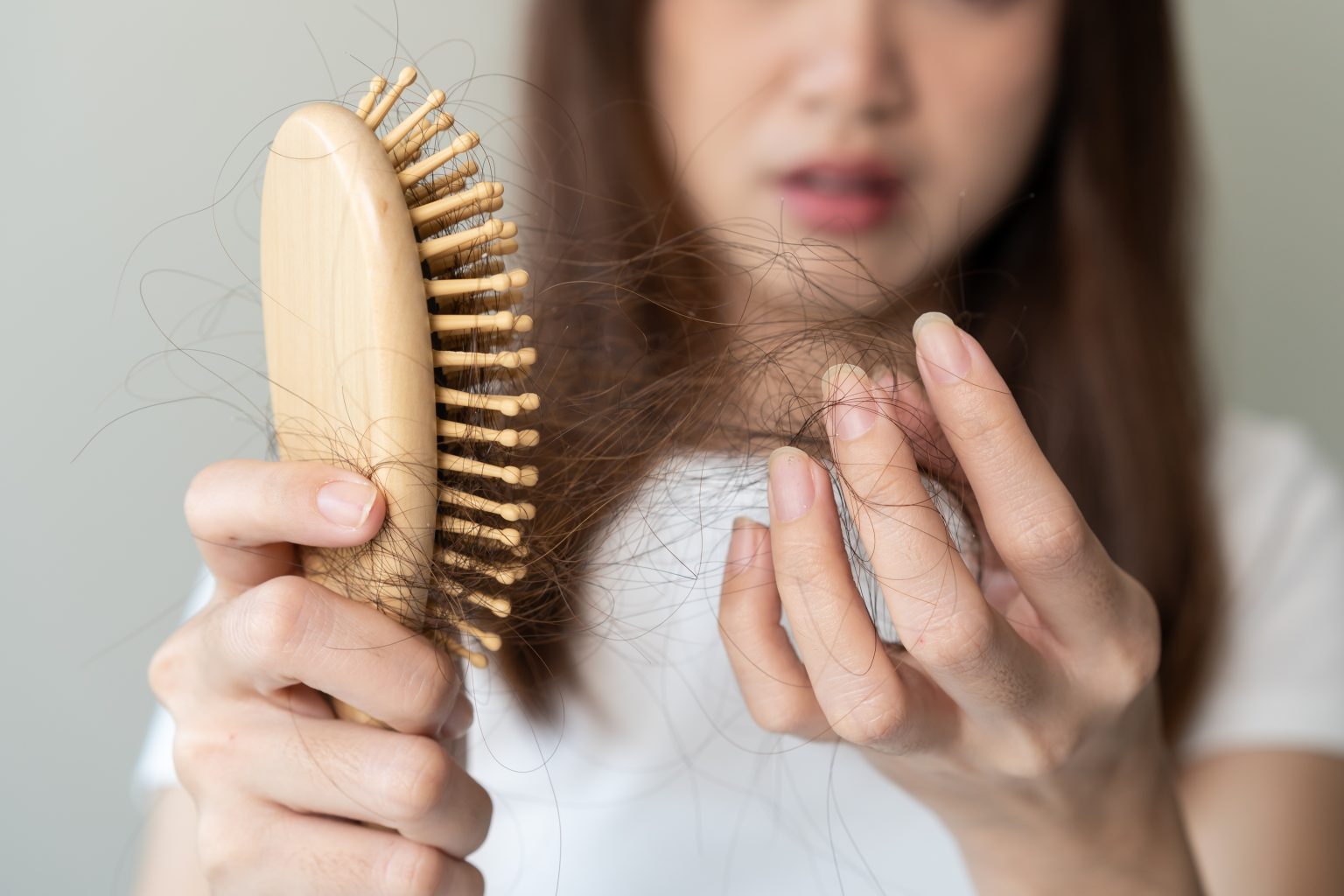A staggering 92% of women believe that hair loss is less acceptable in society compared to men’s hair loss, according to a recent survey conducted by hair loss experts Nanogen. This unfortunate societal stigma has led to 69% of women feeling depressed and 85% experiencing stress due to hair loss.
While society has largely accepted hair loss in men, the conversation around women’s hair loss remains muted, despite growing awareness of natural hormonal changes, such as menopause, which can cause thinning hair. For many women, this is a distressing condition that is often kept hidden.
Only 33% of women talk openly about their hair loss, while 86% actively take steps to conceal their thinning hair using products like hair fibres. Many respondents to the survey revealed that hair loss impacts their daily lives, making activities like swimming, socialising, or even leaving the house more challenging.
Hair loss affects one-third of women at some point in their lives, typically during life stages involving hormonal changes, such as after childbirth or post-menopause. This condition often worsens with age, with half of women experiencing female pattern baldness by the age of 70.
Among the 159 survey respondents, 37% noted that hair loss negatively impacted their relationships, and 30% reported a detrimental effect on their sex life. A striking 61% of women said hair loss made them less inclined to socialise, compared to only 39% of men, highlighting a significant difference in how hair loss is perceived between genders.
Despite these challenges, support is available. Charities such as Alopecia UK offer assistance to those dealing with hair loss, regardless of age or gender. These organisations, in collaboration with brands like Nanogen, are working to raise awareness about alopecia and its profound impact, particularly on women and young people.
Tips for Managing Hair Loss
If you are a woman experiencing hair loss, consider the following tips from Nanogen to help manage and improve the condition of your hair:
- Avoid Stress
Stress-induced hair loss, known as Telogen Effluvium, can occur following childbirth, severe trauma, illness, or major life events. While hair shedding can last up to six months, it often resolves on its own. To cope, try discussing your feelings with friends or family, maintaining a healthy diet, getting regular sleep, and practising self-care. - Use High-Quality Products
Invest in a thickening shampoo and conditioner that supports your hair and scalp. Look for ingredients such as Keratin, Hyaluronic Acid, Salicylic Acid, and Pro Vitamin B5. Hair treatments containing these proven ingredients can help repair both the scalp and hair within 2-4 months. - Style Your Hair Wisely
For women with thinning hair, opt for haircuts that add layers and texture. Shoulder-length or shorter styles can help remove weight and add fullness, making it easier to achieve volume at the roots. A zig-zag parting can effectively disguise problem areas while also adding volume. Loose ponytails or messy buns work well with receding hairlines. - Avoid ‘Wet-Look’ Products
Stick to minimal amounts of texturising sprays or light hair sprays for hold and water resistance, avoiding gels or anything that gives a wet look. - Consider Clinical Treatments
Clinical options like Minoxidil, hair transplants, and Platelet-Rich Plasma (PRP) therapy can be effective but may come with side effects. Finasteride is a treatment option only for men. Consult a GP if you experience sudden hair loss or before pursuing any clinical treatments. Propecia treatment may also be discussed with a GP for its suitability, depending on the individual case. This medication works by targeting hormonal factors associated with hair loss and could complement other clinical approaches. - Use Hair Fibres
Nanogen keratin hair fibres add instant volume and thickness to thinning hair. These fibres attach to existing hair using a patented electrostatic charge and can be easily locked in place with Nanogen’s locking spray.
Andrew Rayner, Managing Director at Nanogen, commented: “It’s concerning to hear that 91% of women feel that hair loss in women is not as accepted in society as it is for men. At Nanogen, we’re committed to supporting both men and women to feel their best when it comes to their hair. While hair loss can be incredibly hard, there are steps that can be taken to minimise its impact and boost confidence.”
Did You Know?
- On average, people lose around 80 to 100 hairs per day. If more than 100 hairs are lost daily, gradual thinning occurs, becoming noticeable in later years when hair growth slows down.
- Each hair follicle typically reactivates around 25 times before it stops producing hair or produces increasingly wispy and short hair.
How to Maintain Healthy Hair
Ensure your diet includes Vitamin D (found in sunlight and oily fish), Iron (in red meat, nuts, beans, chickpeas, and fortified cereals), and Zinc (in meat, shellfish, cheese, bread, and cereals) to support healthy hair. Alongside nutritional improvements, clinical solutions like Propecia can be explored as part of a comprehensive approach to hair health. By addressing both dietary and hormonal factors, you can better manage hair loss and support regrowth efforts.
